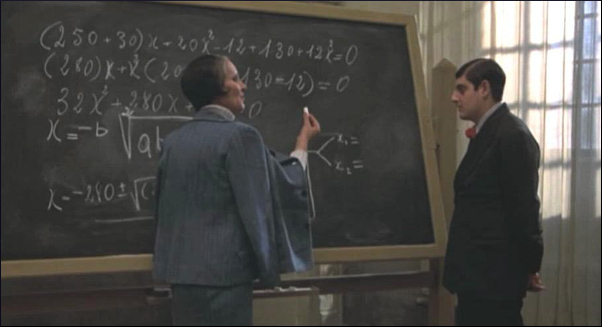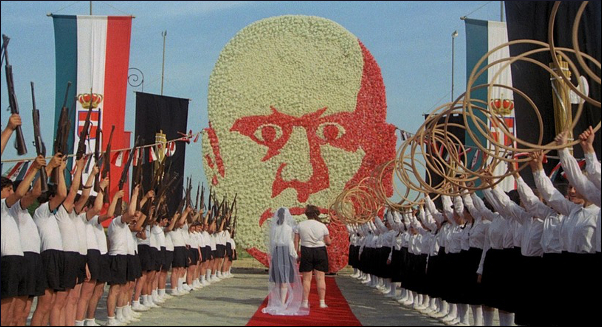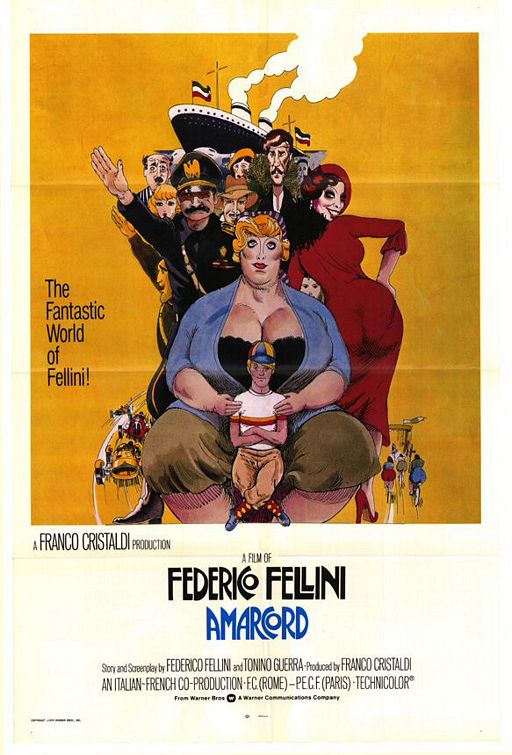Fantasies, dreams, fairy tales. Given their particularly fantastic aura, Federico Fellini’s movies have rarely been considered offspring of the neorealism that characterized Italian cinema between the late 40s and early 50s (even though the director was a protagonist in the movement, as a screenwriter). Rather, his films have always been seen as unrealistic, the mere product of his fantasy and imagination. This is certainly true for films like 8 ½, undoubtedly his masterpiece, and Giulietta degli Spiriti, where any sense of realism is practically missing. And it is also partly true for a production as personal as Amarcord, winner of the Best Foreign Language Film Oscar in 1975.
"The film depicts the director’s childhood recollections in the town of Rimini, in the small little world he dealt with before growing up and leaving for Rome and cinema."
Almost programmatically, from the very title, Fellini tells us we are about to watch a memory. In fact, “amarcord” comes from “a m’arcord,” or “Io mi ricordo” in standard Italian. It means “I do recall” in the dialect of Fellini’s region, Romagna. The film depicts the director’s childhood recollections in the town of Rimini, in the small little world he dealt with before growing up and leaving for Rome and cinema. It was a period he had already depicted several years earlier, in I vitelloni. But Amarcord is not so much a realistic representation of times gone by as it is a return to the past through grotesque lens.

Set between the springs of 1932 and 1933, the movie follows young Titta – Fellini’s alter ego – and his family and friends through a series of sketches. There is no main plot, only a loose structure of rather amusing and funny short episodes, in which Fellini succeeds in ridiculing all the institutions of the time: school, family, the Church, and Fascism. Some scenes have made it into the history books of cinema. For instance: the passage of a transatlantic ship during nighttime; Uncle Teo crying, “Voglio una donna” (I want a woman) from a tree; Gradisca’s night at the Grand Hotel; and Titta having to deal with a tobacconist’s curvaceousness.
"A prevailing sense of loss and sadness permeates every moment: an era has passed, youth is gone, and time itself is running out fast."
However, despite the film’s humor, loaded with inventions and gags of all sorts, audiences are eventually left with a bitter aftertaste. A prevailing sense of loss and sadness permeates every moment: an era has passed, youth is gone, and time itself is running out fast. When Fellini made the film, most of the people he was portraying had been dead for several years, while Italy had changed radically in the meantime. Fear of terrorism and of civil war between the far Left and the far Right were the leading preoccupations in the 70s, and for these reasons, Fellini’s Amarcord could not be happy. From a linguistic point of view, the film is mainly spoken in an Italian seasoned with a deep accent from Romagna. A few characteristic words pop up here and there, such as “ostia” (damn) or “patacca” (worthless). Several characters, especially the secondary players, speak directly in dialect. For instance: “Se il manini è arrivè, dall’inverno sem scapè” (in standard Italian, “Se arrivano i soffioni, siamo fuori dell’inverno,” or “If the dandelions arrive, we are out of winter,” the first thing said by the grandfather figure). The title of the film has entered the Italian language as a synonym for nostalgic memory, for that is exactly what this movie is about. Nevertheless, none like Fellini have been capable of producing art and poetry simply by telling such thin, often vulgar, and apparently forgettable stories. That is what makes the iconic director unique and incomparable to this date.




